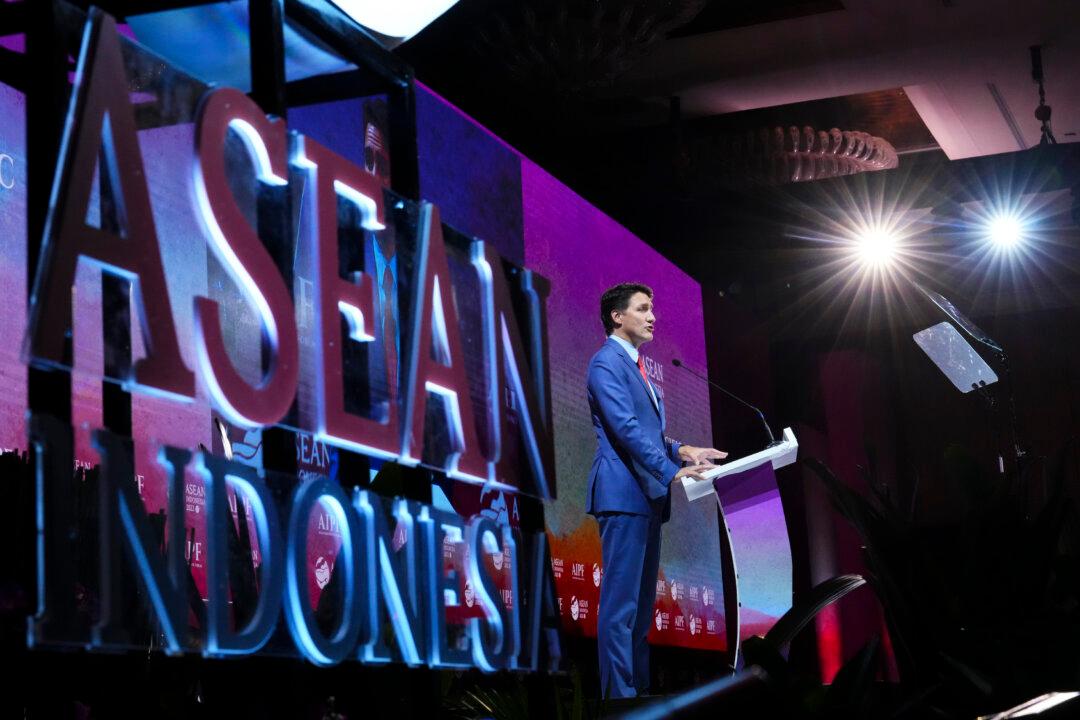A key focus of Canada’s new strategic partnership with Southeast Asian bloc ASEAN revolves around promoting security in the region as countries cope with an assertive China.
Themes of cooperation in the new partnership were presented on Sept. 6 at the Association of Southeast Asian Nations (ASEAN) summit in Indonesia, which was attended by Prime Minister Justin Trudeau.





